DONALD: BREXIT TALKS MUST SETTLE ‘PEOPLE, MONEY, IRELAND’ FIRST
EU President Donald Tusk said Friday that Britain must first settle the divorce issues of “people, money and Ireland” before any talks on a post-Brexit trade deal. In a letter to the other 27 EU leaders ahead of a key summit Saturday, Tusk said that “before discussing our future, we must first sort out our past.” The EU 27 are set to adopt guidelines for the negotiations on Brexit at the summit, following British Prime Minister Theresa May’s formal triggering of the two-year divorce process last month. Tusk said the “only possible approach” was phased talks, in which Britain must make “sufficient progress” on the divorce issues before negotiations on future ties.
Another EU leader,Former Italian Prime Minister Matteo Renzi says that the EU must fundamentally change and get closer to its citizens if it is to survive. Renzi said in Brussels, where he is finishing his campaign to reclaim leadership of the Italian Democratic Party, that “Europe needs radical change” after last year’s British vote to leave the bloc and the rise of populism across the continent. Renzi is hoping this Sunday’s DP primary will see him rebound from the embarrassing defeat Italian voters dealt him last year in a referendum on reforms he made a centerpiece of his government. media agencies
MERKEL ON GLOBAL ISSUE
MERKEL: MACRON WOULD BE ‘STRONG PRESIDENT’ FOR FRANCE
German Chancellor Angela Merkel said on Friday that Emmanuel Macron would make a “strong president” for France, throwing her weight behind the centrist favorite to win a run-off on May 7 against far-right candidate Marine Le Pen. Asked in an interview if Germany would accept future French demands that it increase its contributions to the European Union, Merkel said:“We will see. I can’t anticipate the discussions with the future French president.”
Germany rejected on Friday demands to halt Turkey’s bid to join the EU, even as some EU states said Ankara’s membership dream was dead after Turks voted to grant President Recep Tayyip Erdogan sweeping new powers. German Foreign Minister Sigmar Gabriel, who will discuss the issue on Friday with his EU counterparts and with Turkey’s top diplomat Mevlut Cavusoglu, said such a step would be counterproductive. “The German government is strictly against canceling the [accession] talks, that would be totally the wrong reaction,” he said in Malta. “Those who would like to win applause at home because they say ‘We do not talk to Turkey any more’ will not change anything in Turkey,” he said
German government has said there are no plans to invite Russia to return to the club of leading industrialized nations. A spokesman for Chancellor Angela Merkel said “a change to the G7 format isn’t up for debate at the moment.” Steffen Seibert spoke to reporters Friday ahead of Merkel’s upcoming trip to Russia, AP reported. The chancellor meets Russian President Vladimir Putin in Sochi on Tuesday to discuss the situations in Ukraine, Syria and Libya. Germany hosts a summit of the broader G20 club of leading and emerging economies, of which Russia is a member, in July. Russia said earlier it is not seeking a return to the G8. Media agencies
VEIBY GRABS LEAD AS GILL SUFFERS DAMPER ISSUES
Whangarei (New Zealand), April 29: India’s Gaurav Gill of Team MRF Tyres, struggling with an errant damper, saw his slender advantage vanish as team-mate Ole Christian Veiby from Norway literally splashed his way to a 33.2-second lead in the International Rally of Whangarei which is also the first round of the 2017 FIA Asia Pacific Rally Championship, here on Saturday that marked by heavy rains in the afternoon.
Gill (co-driver Stephane Prevot), the reigning APRC champion and Veiby (Stig Rune Skjærmoen) were locked in a thrilling and close battle through the morning. Delhi-based Gill, winner here last year, led Veiby by just 1.7 seconds on completion of four of the day’s eight Special Stages, one of which was cancelled in the afternoon following an accident that blocked the route.
On the second loop of the same Stages in the afternoon, Gill encountered problems with the front dampers that led to lack of grip, while in contrast, Veiby had a flawless run that helped him not only move to the front, but also finish the day with a sizeable lead.
With another 108 Kms spread over six Special Stages to be run on Sunday and more rains forecast, Veiby and Gill, both piloting the Skoda Fabia R5, are way ahead of the field. Third-placed Jari Ketomaa (Ville Mannisenmaki), in a Mitsubishi Mirage, trails Gill by one minute, 42.5 seconds as Team MRF Tyres eye a possible 1-2 finish.
Reflecting on his day’s performance, Veiby who started with a 2.5-second deficit following Friday night’s Super Special Stage, said: “We started at a comfortable pace initially, but stepped up the speed in the second loop. I particularly enjoyed the long Stages which were amazing and I could make time on Gill, but he was quicker on the shorter tight and twisty Stages.
“Overall, I am happy as we didn’t have any issues with the car. The last Stage was very difficult as it was raining very heavily and we could barely see. The MRF tyres worked extremely well today in difficult conditions and I have become more comfortable with them.”
On his part, Gill felt that there was still a big battle ahead on Sunday despite the deficit he faced. “I had a good run in the morning though I started first and had to sweep the gravel off the track.
“In the afternoon when it rained heavily, I had problems with the dampers due to which there was no front-end grip. I lost confidence thereafter and couldn’t really push. Also, there was plenty of water on the route and every time I went through at speed, I lost pace while the going was much clear for those behind me. Tomorrow is another day and I am up for the challenge.”
Provisional classification (after Leg-1):
APRC: 1. Ole Christian Veiby / Stig Rune Skjærmoen (Team MRF Tyres, Skoda Fabia R5) (01hr, 31mins, 33.8secs); 2. Gaurav Gill / Stephane Prevot (Team MRF Tyres, Skoda Fabia R5) (01:32:07.0); 3. Jari Ketomaa / Ville Mannisenmaki (Mpart Sport, Mitsubishi Mirage) (01:33:49.5).
MEETING OF THE COMMITTEE FOR REVIEW OF PUBLIC PROCUREMENT POLICY FOR DEFENCE SUPPLY
Sub: 1st Meeting of the Committee for Review of Public Procurement Policy for Defence Supply on 1st May, 2017.
Dear
Government has constituted the above committee to connect MSMEs with Defence Procurement and I am pleased to inform that FISME has been taken as a permanent member of the Committee.
As you may be aware, the present public procurement policy for MSMEs reserve 20% of Government purchases from MSMEs, however, defence procurement has not been included in the policy.
By this initiative Government may have started stakeholders’ consultation on the feasibility of reserving some percentage of defence purchases from MSMEs.
We request your comments and past experiences on the barriers MSMEs generally face in defence supplies.
As the meeting of the Committee is slated on 1st May, 2017, we request your inputs by 27th April, 2017
Yours faithfully,
(C S Prakash)
Chairman
MSME Defence Suppliers’ Group
FISME
WORLD IP DAY 2017

TRANSFORMING INDIA

WOMAN SHOT, 6 ARRESTED IN COUNTER-TERROR OPERATION IN LONDON
Woman shot, 6 arrested in counter-terror operation in Londonhttps://t.co/YUTGi4WpjAhttps://t.co/RM0OoHzdAo

Get the whole picture – and other photos from India TV
PIC.TWITTER.COM/RM0OOHZDAO
ENERTIA FOUNDATION: 3RD IPSE AWARDS 2017

ENERTIAFOUNDATION IYERPROF ADDED 8 NEW PHOTOS — WITH YOGENDRA PRASAD AND 4 OTHERS.

“3rd IPSE Awards 2017” announced
“3rd IPSE Awards 2017” instituted by the PSE journal announced by ENERTIA Foundation
Smt Neera Shastri, Daughter-in-Law of Late Prime Minister, Bharat Ratna, Lal Bahadur Shastri, Chief Guest of Honour lauds contribution of India’s Public Sector Enterprises to Nation Building personalities-;
• Shri S. K. Chaturvedi, Former Chairman JERC & Ex. CMD, Power Grid Corporation of India Limited conferred the Prestigious “LIFE-TIME ACHIEVEMENT Award”
• Power Grid Corporation of India Limited (PGCIL) receives Prestigious IPSE Awards Trophy for being “NAVRATNA PSE of the Year”
• Indian Oil Corporation Limited (IOCL) receives Prestigious IPSE Awards Trophy for being “MAHARATNA PSE of the Year”
• Sardar Sarovar Narmada Nigam Ltd. (SSNNL) receives Prestigious IPSE Awards Trophy for being “WATER RESOURCES PSE of the Year”
• States of GUJARAT & ODISHA declared winners for being the “BEST STATE (s) for INVESTMENTS in Public Sector”
• Power Grid Corporation of India Limited (PGCIL) receives Prestigious IPSE Awards Trophy for being “NAVRATNA PSE of the Year”
• Indian Oil Corporation Limited (IOCL) receives Prestigious IPSE Awards Trophy for being “MAHARATNA PSE of the Year”
• Sardar Sarovar Narmada Nigam Ltd. (SSNNL) receives Prestigious IPSE Awards Trophy for being “WATER RESOURCES PSE of the Year”
• States of GUJARAT & ODISHA declared winners for being the “BEST STATE (s) for INVESTMENTS in Public Sector”
“3rd IPSE Awards 2017 – India’s Public Sector Enterprises Awards for Excellence” and concurrent PSE Conclave 2017 are Inspired by Late SHRI. LAL BAHADUR SHASTRI’S Vision & Theme “Jai JAWAN, Jai KISAN, Jai VIGYAN, Jai INSAAN” for “A Self Reliant INDIA” instituted by “PSE Journal” in Association with ENERTIA Foundation for the purpose of “Recognizing India’s PSE Excellence in Core Economy Sector & Contribution to Nation’s GDP” was held on Friday, 28th April 2017 at New Delhi Institute of Management (NDIM) Campus.
Smt Neera Shastri, Daughter-in-Law of Late Prime Minister, Bharat Ratna, Lal Bhadur Shastri was the Chief Guest of Honour. Smt. Neera Shastri is an eminent Leader in the BJP, Ex-VP, BJP, Delhi and Ex-Member National Executive of the Party and also was the Former Member of the National Backward Caste Commission.
The Eminent Dignitaries on the Dias were Prof. A. G. Iyer, Jury Chairman, IPSE Awards; the Author of Path-Breaking Books, “ATAL SHASTRA”; INDIA BRANDished & Powering-in-Crisis ; Editor, PSE Journal, ENERTIA & MARKENOMY; Suresh Sharma, Patron-in-Chief, IPSE Awards and Chairman, Global Cancer Mission (GCM); Santosh Goenka, Former Executive Publisher, Indian Express Group & Executive Director, Business India; S. K. Chaturvedi, Former Chairman, JERC & Ex-CMD, PowerGrid ; Yogendra Prasad, Former CMD, NHPC; A. B. Agrawal, Former CMD, Bhakra Beas Management Board (BBMB)
Eminent Film Maker Aubrey Aloysius, who was the Special Guest of Honour screened the 4-minutes Power-Packed Trailer Promo on the Upcoming Documentary Film titled “HERO of WAR & PEACE” on the Late Prime Minster, Bharat Ratna, Lal Bahadur Shastri for the audience of the day.
Shri S. K. Chaturvedi, Former Chairman JERC & Ex. CMD, Power Grid Corporation of India Limited was conferred with the Prestigious “LIFE-TIME ACHIEVEMENT Award” for His Yeomen contribution spanning 4-Decades + Excellence and Service to the Public Sector Enterprises of India especially NHPC and finally culminating in your Chairmanship at India’s Apex Power Transmission entity namely Power Grid Corporation of India Limited and that you left an indelible impression on India’s Public Sector Enterprises’ Management and Leadership Saga covering HR & Personnel, Civil & Construction, Electricity Transmission & Distribution, Public Sector Enterprise Administration, Grass Root CSR, Financial Management & Engineering Excellence.
Power Grid Corporation of India Limited (PGCIL) won Prestigious Trophy for “NAVRATNA PSE of the Year” for its achievement of “One Nation – One Grid – One Frequency – One Price” and at the same time achieving the 1200 KV – Highest Voltage Test Facilities at BINA via NHPTL. Further, Power Grid has achieved the distinction of propelling SARG (South Asian Regional Grid) by enhancing Transmission Infra Capabilities for Bhutan, Bangladesh, Nepal & Myanmar and helping the Nation to now be a Net Exporter of Power in the Cross-Border Electricity Trade Regime with these SAARC Nations.
Indian Oil Corporation Limited (IOCL) won Prestigious Award for “MAHARATNA PSE of the Year”. ‘IOCL’ remains India’s Topmost Corporation with a Turnover in Excess of US $ 56 Billion and Profit After Tax (PAT) over US $ 2.5 Billion making it the Nation’s Pride and the BEST amongst its MAHARATNA’s in Performance, Output as Best OMC, Contribution to National Economy, Strategic Reserves build-up etc.
Sardar Sarovar Narmada Nigam Ltd. (SSNNL) won Prestigious Trophy for “Water Resources PSE of the Year”. The Eminent Jury recognized ‘Sardar Sarovar Narmada Nigam Limited’s’ (SSNNL) continuous performance in the commitment to Water Supply to the State of Gujarat while helping in the Electricity and Power Access to States of Madhya Pradesh, Maharashtra and Gujarat sharing benefits in the ratio 57 : 27 : 16 making it a “State PSE of National Significance”. SSNNL – Sardar Sarovar Project irrigates 1.84 Mha (75% area drought prone) in Gujarat and 0.246 Mha in Desert Districts of Rajasthan. The Jury further recognized that the Hydro Power Installed Capacity is 1450 MW which includes RBPH (River Bed Power House – 1200 MW) & CHPH (Canal Head Power House – 250 MW). In 2016-17, the Net Power Generated was 2982.6 Million Units (RBPH – 2257.8 MUs + CHPH – 724.8 MUs).
States of GUJARAT & ODISHA declared winners for being the “BEST STATE (s) for INVESTMENTS in Public Sector”.
The Jury of 3rd “IPSE Awards 2017” recognized Gujarat, that the Public Sector Enterprises continue to prosper with their Investments in ‘GUJARAT’ with notable successes of both Central and State PSEs, naming a few like GPCL, SSNNL (Sardar Sarovar Narmada Nigam Limited), GNFC, GSFC, Gujarat Maritime Board, ONGC – Hazira, GACL, GSPL, GMDC, etc. Other successful Enterprises include GGCL, GIPCL, GETCO, GUVNL, DGVCL, etc.
The Jury of 3rd “IPSE Awards 2017” recognized Odisha, the Public Sector Enterprises continue to prosper with their Investments in ‘ODISHA’ with notable successes of both Central and State PSEs, naming a few like NALCO, OPTCL, GRIDCO, OPGC, SAIL, OMC, OMDC, MCL, ODCL, IIDCO, OSFC, OSRTC, OSWC, etc. Other successful Enterprises include IDCOL, OAIC, OCCL, OLIC, OSIC, OHPC, etc.
The Jury of 3rd “IPSE Awards 2017” recognized Odisha, the Public Sector Enterprises continue to prosper with their Investments in ‘ODISHA’ with notable successes of both Central and State PSEs, naming a few like NALCO, OPTCL, GRIDCO, OPGC, SAIL, OMC, OMDC, MCL, ODCL, IIDCO, OSFC, OSRTC, OSWC, etc. Other successful Enterprises include IDCOL, OAIC, OCCL, OLIC, OSIC, OHPC, etc.
The “3rd IPSE Awards 2017 – India’s Public Sector Enterprises Awards for Excellence” were Organized by Mars Media Resources (MMR); LAMP Trust & GCM – Global Cancer Mission was Supported Cause while the Associate Partner(s) were WAPCOS, NTPC, NHPC & KPTCL; SJVN, Bergen Solar & IREDA were Supporting Partner(s).
New Delhi Institute of Management (NDIM), has Partnered with “ENERTIA Foundation” as ‘Knowledge & Research Partner’ for “3rd IPSE Awards 2017”.
REPA, ASMEI & SETU Foundation were Partner Association(s); BIRDS (Bergen Institute on Research for Development of Skills) were Institutional Support Partners. ‘3rd IPSE Awards 2017’ was Powered by Falcon Media & EEPL (ENERTIA ENFRAMedia Pvt. Ltd.) as ‘Media Partner’.
NB: The Eminent Jury Panel includes ‘3rd IPSE Awards 2017’ instituted by PSE Journal, organized by ENERTIA Foundation & Mars Media Resources (MMR) Prof. A. G. Iyer, Chairman, 3rd IPSE Awards 2017; Editor-at-Large, PSE Journal, MARS Media Resources; CMD & Editor-in-Chief, ENFRAtv; President, ENERTIA Foundation, Editor-in-Chief, ENERTIA & MARKENOMY; Markenomy Foundation, ASMEI & REPA, Author – ‘ATAL SHASTRA’; INDIA BRANDished; POWERING-in-CRISIS; Suresh Sharma, Patron-in-Chief, 3rd IPSE Awards 2017 Chairman, Global Cancer Mission (GCM); Founder Chairman; SK Consulting Group; Executive VP, India-China Economic and Cultural Council (ICEC); Yogendra Prasad, Former CMD, NHPC & Former VP, IHA & Former President, INHA & K. Ravi Kumar, Former CMD, BHEL; Independent Director, Reliance ADAG were Co-Chairman
Eminent Member Jury include Hetal Mehta, Chairman, SETU; Jt. President, ASMEI & REPA; T. C. Arora, Former Director, Toshiba India; Hon. Associate Director, REPA & MD, ACCUNERGY; P V S N Murty, Former VP, Voith Hydro India; Hon. Associate Director, REPA & Director, Parnandy Associates; Prakkhyat Sharma, CEO, S K Consulting; Director, THESEUS Group
Special International Jury Advisory Members include Dr. Prakasam Tata, Executive Director, CTWT, ILLINOIS, USA and Dr. Hirdesh Khanna, Chairman & Managing Director, iKRATOS Solargie Pvt. Ltd.
Special International Jury Advisory Members include Dr. Prakasam Tata, Executive Director, CTWT, ILLINOIS, USA and Dr. Hirdesh Khanna, Chairman & Managing Director, iKRATOS Solargie Pvt. Ltd.
{Released by ENERTIA Foundation & MARS MEDIA Resources -MMR}
ipseawards@gmail.com / enertiafoundation@gmail.com
ipseawards@gmail.com / enertiafoundation@gmail.com
ENERTIA Foundation Secretariat – +91-7588713573 / 9223547582






Neera Shastri Aubrey Aloysius. Yogendra Prasad Suresh Sharma Sk Chaturvedi AB Agrawal Santosh Goenka.

VENEZUELA TO WITHDRAW FROM OAS

Venezuela the nation is flush with oil, but strapped for cash. the store shelves frugal with commodities and hospitals short on medicine have driven its people to desperation and line on streets for continuous protests.
National economic system aimed at freeing Venezuelans from poverty and a corrupt government is now starving them. The Food subsidies, higher education enrollment and access to healthcare were pleaded by leader Hugo Chavez as evidence that his socialist revolution was a success. However, Chavez’ time in office from 1998 to 2013 also launched two developments that lie at the root of Venezuela’s current economic crisis: the expropriation of the oil industry in the name of nationalization and the expansion of import-based goods.
Venezuela has been spiraling down into a fresh phase of protest, violence and instability. This latest spasm of demonstrations and mass arrests began, oddly enough, with a court decision. On March 28, Venezuela’s chief justice, Maikel Moreno, issued a shockingly broad decision that essentially shut down the country’s elected national legislature and transferred all its powers to the court over which he presides
OAS meeting – with the exception of Canada, Cuba and the United States – are also members of CELAC. What, then, is the difference between a debate on Venezuela in the OAS and in CELAC? “It’s in the fact that CELAC has neither a democracy clause, nor a mechanism for monitoring the upholding of human rights,” said Victor Mijares, professor for International Relations at the Catholic University in Bogota. But Mijares is careful not to overly praise the OAS. He doubts whether the pan-American foreign ministers summit will do anything to change the status quo in Venezuela.
Foreign minister, Delcy Rodriguez referring to the at that point unconfirmed – meeting of foreign ministers from the Organization of American States (OAS) to discuss the crisis in Venezuela. When it was announced on Wednesday, April 26, that the foreign ministers had agreed to meet, Rodriguez explained that she had received direct orders to withdraw Venezuela from the OAS, and confirmed the special CELAC meeting she’d requested for May 2 in the capital of El Salvador, one of the few countries that continues to show solidarity with Venezuela.
Venezuela today handed a letter on its withdrawal to the Secretary General of the Organization of American States (OAS). On Wednesday, Venezuela’s President Nicolas Maduro initiated an immediate pullout from the OAS, as its Permanent Council voted in favor of holding an emergency meeting of foreign ministers to discuss the political crisis in the country without the approval of Caracas.
Huge protests flared up in Venezuela after its top court tried to take over legislative powers from the opposition-controlled National Assembly.
The court reversed the ruling but this did not prevent anti-Maduro demonstrations from taking place across the country. Media agencies
MANY KILLED IN KYRGYZ LANDSLIDE
Kyrgyzstan, 24 people were killed in a landslide that swept over houses in a village in the south of the country early today.
Nine of the dead include children. An initial statement by Emergencies ministry reported that four people had died and at least 20 were missing.
MILLION REGISTERED COMPANIES NOT FILING RETURNS
The winding up procedure of private and Public limited are so stringent that the authorities may be including companies which are obsolete with technology outdated or government policy has turned the business of many companies to go inert need to classifies as most the MSME and big companies don’t file their income tax returns as there is no business and business activities are not happening or being stopped due to many reasons thus when within ten years no return is filed an Directors has given in writing that company has gone defunct then those companies must obviously be its artificial person designation may be written off from the ROC name clause. These small exercise can reduce the number of registered companies not filing returns. This matter was brought to the notice of Dr Jitendra Singh, Minister of State DONER (IC), PMO, Personnel, Public Grievances & Pensions, Atomic Energy and Space, Government of India.
This matter pertains with Finance Minister and Minister of Company affairs but the companies which go defunct due to technology defunct or change in policy of the government or certain notification then those companies when go inert then those companies need to be given creamy defunct status and within three year of their non filing of returns and business winding up must be made easy and fast.
Revenue Secretary Hasmukh Adhia has said that as many as 8-9 lakh registered companies not filing annual returns with the Ministry of Corporate Affairs, are a potential source of money laundering.
Speaking at the Enforcement Day event in New Delhi today, Mr Adhia said, the task force set up by PMO is monitoring these companies every 15 days. He said, some of these companies have been given notices.
NICOLAS DUPONT ANNOUNCES SUPPORT FOR LE PEN
French presidential candidate Nicolas Dupont-Aignan announced today his support for right-winger Marine Le Pen and said he had signed a pact with her on a future government. Dupont-Aignan is the leader of the right-wing Debout la France (France Arise) party. He was knocked out of the presidential race after winning 4.7 percent of votes in the first round.
Marine Le Pen and centrist Emmanuel Macron came out on top in the first tour. Dupont-Aignan said that under the governance deal with Le Pen his policy proposals would be incorporated in her campaign. He also branded her rival Macron as a lobbyist of financiers and media.
50TH YEAR OF ADB
As you all know, Asian Development Bank (ADB), the multilateral bank based in Manila, Philippines, is celebrating 50 years of its establishment this year.
In the Asia-Pacific region, ADB has come up as the third largest source of financial investment, after the World Bank and Govt. of Japan. India is a founding member of ADB. From a mere total lending of $3 billion inits first decade (1966-76), ADB has grown to$123 billion dollars lending institution in the last decade.These lending were used to make mega projects across the countries, including India, resulting in serious loss of livelihood, displacement, irreversible damage caused to water, forest, land and community life wrought by its very concept of development and irresponsible and opaque investment.
The ADB actively propagated three main achievements in its 2015 Report:
(i) that the Gross Domestic Product (GDP) of the Asia-Pacific countries is one third of the Gross Domestic Product (GDP) of the world,
(ii) an infant born in Asia today, shall live 25 years longer compared with the person born in 1960, and
(iii) in 2016 there would be a record loan of 8.3 billion in the private sector.
Furthermore, the Report claimed that the carbon emission in this area has been reduced to the half of the emission in the world.
The mid-term Survey of Strategy 2015 and 2020 of the ADB has however admitted that the Asia and Pacific region have been facing increasing inequalities in income and access to socio-economic opportunities. Increasing investment in infrastructural projects has failed in providing social security to the marginalized sections which includes labourers and women.
The mid-term Survey of Strategy 2015 and 2020 of the ADB has however admitted that the Asia and Pacific region have been facing increasing inequalities in income and access to socio-economic opportunities. Increasing investment in infrastructural projects has failed in providing social security to the marginalized sections which includes labourers and women.
While the official celebrations of 50 years will happen in Yokohama city, Japan from May 4-7, people’s movements and other civil society organisations in India have decided to hold over 50 actions of protest in different parts of the country, challenging the narrative of ADB about the successes of their lending and highlighting the enormous damage the lending has caused to people and environment.
ADB is only one of the many international financial institutions (IFIs) promoting a distorted development model. The World Bank, its private sector arm International Finance Corporation, the newly formed Asia Infrastructure Investment Bank and New Development Bank are other multilateral development banks investing in India. Apart from that bilateral institutions like Exim banks and foreign private banks invest in projects here.
The 50+ actions during the occasion of ADB’s 50 years is an opportunity to highlight the unsustainable model of lending by these undemocratic institutions. Further, the lack of transparency and accountability of them and the immunity that they enjoy in every country they invest are issues these 50+ actions are raising.
While Peoples’ Forum Against ADB, a platform of people’s movements and civil society organisations working on the impacts of international financing, is the one coordinating these 50+ events, the actions are organised by local organisations in a manner which is relevant to them, to highlight their struggles / issues and seek transparency and accountability from IFIs.
Apart from their investments these institutions have influenced to make changes policies of the government. Privatization of commons and public services are now beyond the reach of the public and regulation by democratic institutions have been weakened. In many states basic facilities like water and electricity have been privatized, and in this ADB and other IFIs have major contribution.
Whether it is ADB/World Bank or any public sector bank of the country,all financial institutions run on public money directly or indirectly. It is hard earned money of the public which has been invested in the banks or insurance companies.The banks have in turn loaned lakhs of crores rupees of public funds to mainly private companies, at cheap interest rates, which is basically money of the public being utilized for the devastating the people themselves.
Friends,we have to demand accountability from these institutions for their irresponsible and opaque investments of our money. The 50th year of ADB is an opportune moment to spread the struggle against financial institutions, international banks and the neo-liberal economic development model in general, all of which have failed the people completely.
During the 39th Annual Meeting of ADB in the year 2006 at Hyderabad, more than 100 trade unions, NGOs, social movements came together and a parallel Summit was organised to oppose ADB’s policies. The collective effort progressed with the formation of People’s Forum Against ADB which includes many member organisations from India and other Asian countries. This year, the protest actions are spread across the country against the increasing imprints of ADB’s inequitable and unjust development model. The actions planned at different places has overwhelmingly reached over 100 which were planned initially at 50 places, some planned by NAPM friends and comrades. The support and enthusiasm that is still prevalent among the people of the country resisting the attacks of financial institutions on their life and livelihood along with other issues will only motivate us to strengthen this struggle. We need to stand by them and show our solidarity.
We believe more friends of NAPM will participate and plan this kind of protest actions and strengthen the spirit of our other comrades. Hence let us raise our voice against the increasing attack on our fundamental rights and repression supported by these financial institutions. Let us participate in the resistance at local, regional, state and national level campaigns. Share your message of resistance on Facebook and Twitter through photos and videos and let’s make IFIs accountable.
Email: wgonifis@gmail.com | Phone: 011-49123696
Web: http://wgonifis.net/ | Twitter @wgonifis
Facebook @ wgonifis#BetterOffWithoutADB
Web: http://wgonifis.net/ | Twitter @wgonifis
Facebook @ wgonifis#BetterOffWithoutADB
NEW BEIJING DIGITAL ART INSTITUTE TO PREPARE GAMES STUDENTS FOR ABERTAY UNIVERSITY<
A state-of-the-art new learning space will prepare Chinese computer games students for one of the world’s top postgraduate courses at Abertay University.
Abertay Principal and Vice-Chancellor Professor Nigel Seaton attended the unveiling of the new Pixseed Institute of Digital Art in Beijing, where students will train for five months before coming to Dundee to join the University’s MProf Games Development programme.
The visit on Thursday followed the signing of a cooperation agreement between Abertay and school owner Perfect World Education in December, with a view to furthering collaboration and cultural exchange between the two countries’ games sectors.
Pixseed opens as Abertay celebrates 20 years since becoming the first University in the world to offer computer games degrees, with a programme of events running on campus in Dundee throughout the year.
And just last month, Abertay’s MProf course was ranked inside the world’s top ten games courses by the prestigious Princeton Review, while undergraduate courses were rated best in Europe.
Prof Seaton said the five-month Master of Professional Practice in Games Development Orientation Programme (MPPOP) in Beijing would provide Chinese students with the ideal preparation for entering Abertay.
He added: “Pixseed is a fantastic resource and acts as a tangible marker of the growing collaboration between Abertay University and Perfect World, as well as reflecting the strength of collaboration between the UK and China in Higher Education.
“Abertay’s MProf programme was recently ranked in the global top ten for postgraduate computer games courses, indicating the outstanding quality of teaching and support that students joining us from Beijing can expect to receive.
“I am confident that the creative industries of both countries are well placed for further success as we continue to share our talent and expertise, and to grow together.”
Pixseed is a talent incubator that focuses on digital art fields such as games, comics and animation, TV and movies to cultivate talent in design, research and development and management.
All courses will use classic games as case studies in teaching and practicing and students will get internship opportunities in Perfect World Education and its affiliated companies, as well as other enterprises.
Pixseed was unveiled during a ceremony attended by President of Perfect World Education Investment Co. Ltd Wang Yuyun and representatives from the Chinese games and animation industry.
Wang Yuyun said: “We have experience in judging the job market and we know how to train a suitable talent.
“And more importantly, we are able to integrate top-class digital innovation education resources from across the world, and that is why we are fully confident in the future of Pixseed.”
The MPPOP is Perfect World’s first education programme and the company is focusing on developing talent with an international outlook for the Chinese market.
M6.8 – MINDANAO, PHILIPPINES
| Magnitude | 6.8 |
| Date-Time |
|
| Location | 5.477N 125.084E |
| Depth | 41 km |
| Distances |
|
VITAMIN D AWARENESS CAMPAIGN WITH TV STAR ANUP SONI GOES VIRAL ON SOCIAL MEDIA!
New Delhi / National, April 28, 2017: VitaminDguru.com, the popular website promoting awareness of Vitamin D recently launched its awareness campaign with TV star Anup Soni across social media. The awareness campaign has been released online across VitaminDguru.com’s Facebook page, YouTube channel and other social media channels to a phenomenal response by the viewers. The films have racked up total views of over 2.5 lakhs in the brief time since the launch.
A delighted Anup Soni said, “I am thrilled to be associated with such a noble cause. This campaign highlighting the importance of Vitamin D and various serious outcomes associated with its deficiency has reached so many people in such a short time! I hope that the films will create awareness about the problems caused by deficiency of Vitamin D and would lead the viewers to take appropriate steps.”
This series of films in this social awareness initiative has Anup Soni, the popular TV star from serials like ‘Balika Vadhu’ and ‘CID’, who is currently anchoring the reality crime TV serials ‘Crime Patrol’, informing viewers about the importance of Vitamin D, its prevailing deficiency among people and the health issues resulting from it.
In the first film, Anup Soni has highlighted the fact that every day, crores of people are committing a crime on their body by not being aware that they can be suffering from deficiency of Vitamin D. The second film has him shocked about the fact that over 90% of Indians have Vitamin D deficiency. In the third film, Anup Soni informs viewers to be aware of the possibility that 4 out of 5 members of their families can be deficient in Vitamin D, especially in growing children and senior citizens.
This is Vitamin D Guru’s first awareness campaign that has Anup Soni, a leading TV star in taking the message about Vitamin D deficiency to the public. Vitamin D deficiency is a looming problem for society and the financial burden arising from the problems related to it needs to be addressed and create awareness. This campaign will reach out to the public and help them to be aware of and battle Vitamin D deficiency which is a silent threat.”
The public service films are based on scientific and medical research available that show the harmful effects of deficiency of Vitamin D with the aim of creating awareness of the importance of Vitamin D in the general population and make the viewers conscious of the harmful effects of its deficiency.
The films can be viewed on –
Film 1
Film 2
About Vitamin D Guru
Vitamin D Guru is a public service initiative started in 2014. Over the past two years, with its digital arm www.vitamindguru.com, the initiative has continuously provided educational and awareness related information with respect to the importance of Vitamin D and the harmful effects which may be caused due to its deficiency. Vitamin D (commonly known as the “the sunshine vitamin”) is important for good overall health and strong and healthy bones amongst a host of other health benefits. A significant population globally is Vitamin D deficient or insufficient hence its awareness is of paramount importance.
GAURAV GILL SPEEDS UP FOR EARLY LEAD DURING APRC 2017 ROUND 1 IN WHANGAREI
New Delhi, April 28, 2017: India’s Gaurav Gill of Team MRF Tyres, the defending champion, put the hammer down with a scorching night run of the Super Special Stage and led team-mate Ole Christian Veiby by 2.5 seconds as the International Rally of Whangarei, the first round of the FIA Asia Pacific Rally Championship got underway here on Friday.
Gill along with co-driver Stephane Prevot came up with an imperious drive during the two loops of the 1Km long Super Special Stage that was also used for the morning’s shakedown where APRC debutant Veiby was the quickest. However, in the night run, it was Gill all the way as he clocked one minute, 49.2 seconds while Veiby had 01:51.7, well clear of third placed Jan Ketomaa (Ville Mannisenmaki) of Mpart Sport (01:52.9).
After the shakedown session, Gill expressed satisfaction even as he shrugged off Veiby being quicker than him, albeit by five-tenths of a second, and reiterated his confidence going into the new APRC season after having dominated last year when he won all six rounds of the championship.
“I am hoping it would rain tomorrow, not much, but just enough so that it will help us. Our MRF tyres have been working well and a bit of rain will be to our advantage,” said Gill during the pre-event press conference that followed the shakedown session.
The picture-postcard beautiful region did experience mild showers in the afternoon, but the skies cleared by the time the Super Special Stage commenced after the ceremonial flag-off.
With a cushion of 2.5 seconds, Gill hopes to build on the early momentum on Saturday when the rally moves north to run two loops of four Special Stages which the two-times champion is only too familiar with unlike Veiby, a regular in the World Rally Championship–2, and who is breaking new ground in this regional series.
Provisional classification (after Super Special Stage): 1. Gaurav Gill / Stephane Prevot (Team MRF Tyres, Skoda Fabia R5) (1min, 49.2secs); 2. Ole Christian Veiby / Stig Rune Skjærmoen (Team MRF Tyres, Skoda Fabia R5) (01:51.7); 3. Jan Ketomaa / Ville Mannisenmaki (Mpart Sport, Mitsubishi Mirage) (01:52.9).
ADR’S 13TH ANNUAL NATIONAL CONFERENCE ON ELECTORAL AND POLITICAL REFORMS
Punjab and Haryana Election Watch to Host ADR’s 13th Annual National Conference on Electoral and Political Reforms
Chandigarh, April 28th, 2017: Punjab & Haryana Election Watch (P&H EW) today announced the 13th Annual National Conference on Electoral and Political Reforms of Association for Democratic Reforms (ADR) and National Election Watch (NEW) at a Press Conference held at Press Club, Chandigarh. This two-day event will be held on April 29th and 30th, 2017 at the Golden Jubilee Hall, Panjab University, Chandigarh.
Mr. Jaskirat Singh, trustee ADR and Mr. Parvinder Singh Kittna, state coordinator Punjab Election Watch (PEW) gave an overview of the two reports which were being presented at the press conference. At the Press Conference, two reports (attached) were released on ‘Analysis of Election Expenditure Statements of MLAs Punjab Assembly Elections, 2017’ and ‘Analysis of Sources of Funding of Major Political Parties of Punjab FY 2004-05 to 2014-15 (11 years)’.
Discussing the report, Prof Trilochan Sastry, Founder Trustee, ADR & NEW, said “voters should not vote for candidates who try to bribe them for votes as they will only be focusing on getting that money back and more, once they are elected. Prof. Sastry informed the press that there needs to be a systematic change in the way political parties function today. They have to be 100 percent transparent and accountable and the right step in moving towards that direction would be for the political parties to adhere to the CIC ruling and come under the ambit of the RTI.
The Chief Election Commissioner, Dr. Nasim Zaidi, will be inaugurating the National Conference and will give the key note address as the Chief Guest on 29th April, 2017. Representatives of the National Election Watch from each state chapter, members of political parties, government institutions and academicians will be present to deliberate on issues related to electoral and political reform in the country.
LUV-KUSH RAMLILA BOLLYWOOD ACTORS TO REVEAL THEIR RAMLEELA CHARACTERS
PRESS INVITATION
LuvKush Ramlila Committee cordially invites
You to attend the cover of Press conference and to share
with you the uniqueness of
with you the uniqueness of
LUV-KUSH RAMLILA
(Bollywood actors to reveal their Ramleela characters)
(Bollywood actors to reveal their Ramleela characters)
Guests:
– Manoj Tiwari (BJP President & Bhojpuri Superstar)
– Anup Jalota (Singer & Musician)
– Asrani (film actor)
– Shankar Sahni (Singer)
– Ashok Aggarwal (Chairman of Ramlila Committee)
Time : 11:30 a.m.
Date : 30th April, 2017 (Sunday)
Venue : Constitution Club of India, Rafi Marg
Date : 30th April, 2017 (Sunday)
Venue : Constitution Club of India, Rafi Marg
SPORTS MINISTER MR VIJAY GOEL ADDRESS MEDIA DRAFT ANTI- DOPING LEGISLATION CONSULTATION
Sports Minister Mr Vijay Goel making a hectic efforts to curb the menace of doping from the incessant growing cases of doping in International events. To bring the subject to ultimate awareness the program of consultation by the minister with various stakeholders is indeed a gallant effort for the pride of nation to not be lost be mere ignorance,greed or by virtue of cheating in events across the world. Briefing media on subject of Anti-Doping draft Legislation consultation at Vigyan Bhawan New Delhi he said our efforts are to completely educate, offer preventive steps and draft a legislation in this regards.

NEW BEIJING DIGITAL ART INSTITUTE TO PREPARE GAMES STUDENTS FOR ABERTAY UNIVERSITY
A state-of-the-art new learning space will prepare Chinese computer games students for one of the world’s top postgraduate courses at Abertay University.
Abertay Principal and Vice-Chancellor Professor Nigel Seaton attended the unveiling of the new Pixseed Institute of Digital Art in Beijing, where students will train for five months before coming to Dundee to join the University’s MProf Games Development programme.
The visit on Thursday followed the signing of a cooperation agreement between Abertay and school owner Perfect World Education in December, with a view to furthering collaboration and cultural exchange between the two countries’ games sectors.
Pixseed opens as Abertay celebrates 20 years since becoming the first University in the world to offer computer games degrees, with a programme of events running on campus in Dundee throughout the year.
And just last month, Abertay’s MProf course was ranked inside the world’s top ten games courses by the prestigious Princeton Review, while undergraduate courses were rated best in Europe.
Prof Seaton said the five-month Master of Professional Practice in Games Development Orientation Programme (MPPOP) in Beijing would provide Chinese students with the ideal preparation for entering Abertay.
He added: “Pixseed is a fantastic resource and acts as a tangible marker of the growing collaboration between Abertay University and Perfect World, as well as reflecting the strength of collaboration between the UK and China in Higher Education.
“Abertay’s MProf programme was recently ranked in the global top ten for postgraduate computer games courses, indicating the outstanding quality of teaching and support that students joining us from Beijing can expect to receive.
“I am confident that the creative industries of both countries are well placed for further success as we continue to share our talent and expertise, and to grow together.”
Pixseed is a talent incubator that focuses on digital art fields such as games, comics and animation, TV and movies to cultivate talent in design, research and development and management.
All courses will use classic games as case studies in teaching and practicing and students will get internship opportunities in Perfect World Education and its affiliated companies, as well as other enterprises.
Pixseed was unveiled during a ceremony attended by President of Perfect World Education Investment Co. Ltd Wang Yuyun and representatives from the Chinese games and animation industry.
Wang Yuyun said: “We have experience in judging the job market and we know how to train a suitable talent.
“And more importantly, we are able to integrate top-class digital innovation education resources from across the world, and that is why we are fully confident in the future of Pixseed.”
The MPPOP is Perfect World’s first education programme and the company is focusing on developing talent with an international outlook for the Chinese market.
CAIT PLANS TO LAUNCH DIGITAL RATH
CAIT plans to launch Digital Rath for faster adoption of GST and Digital Payments
~~Digi Varta National Campaign to be launched on May 01, 2017~~
New Delhi, April 28, 2017: The Confederation of All India Traders (CAIT) plans to launch a Digital Rath for encouraging adoption of GST & digital payment among trading community & other verticals of non-corporate sector. This would be a part of its 60 days “Digi Varta” national campaign, to be launched in the Country on 1st May, 2017 which will continue till 30 June, 2017. The announcement was made at a two days National Conference of trade leaders held at New Delhi which concluded today. Payment technology global major MasterCard, lead bankers of the Country HDFC Bank & Tally Solutions Limited, premier Accounting Software Company of India shall be part of the Digi Varta Campaign. More than 150 prominent trade leaders from 27 States & Union Territories attended the Conference.
CAIT National President Mr. B.C.Bhartia said that the campaign will help traders to adopt digital payments and meet the deadline of July 1, 2017 to transit from the current taxation system to the new Goods & Service Tax (GST) regime. To enable small enterprises realise the benefits of digitalisation and adopt technology at a fast pace 6 Zonal Conferences will be held at New Delhi, Mumbai, Kolkata, Nagpur, Banglore & Guwahati will be held followed State level Conferences in each State. The campaign will include market camps, seminars and workshops to be organised in close vicinity of small traders by Master Trainers* being trained by CAIT in association with its partners.
CAIT Secretary General Mr. Praveen Khandelwal informed that a special feature of this campaign will be the introduction of a “DIGITAL RATH” to be continuously driven through various geographies of the country to educate and empower small business and the trading community on enhanced adoption of digital payments and consequently realise seamless transition to GST tax regime, benefitting last mile delivery of key objectives of the Union Government.
Both Mr. Bhartia & Mr. Khandelwal further said that through the launch of this national campaign in association with Mastercard, HDFC Bank and Tally Solutions, we strive to provide GST related hardware and software, financed through a special loan to help small businesses embrace digital payments and GST taxation system. CAIT stays committed to redress the challenges being faced by our traders including education amongst traders, incentives for adoption of technology, availability of affordable tools etc. to trigger transition to modernise business operations and procedures, benefitting industry at large.”
*About Master Trainers
CAIT, in association with Mastercard, launched a campaign in the year 2015 to train trade leaders as “Master Trainers” and has organised more than 100 training conferences in 2015 and 2016, including workshops in over 30 cities across the country through which they were successful in reaching out to over 5 lakh traders. This was further expanded with CAIT’s partnership with Tally Solutions and launch of “Mission GST” in the year 2016 under which more than 5,000 trade leaders were educated and empowered across the country as master trainers to further impart knowledge of GST in their respective states and cities.



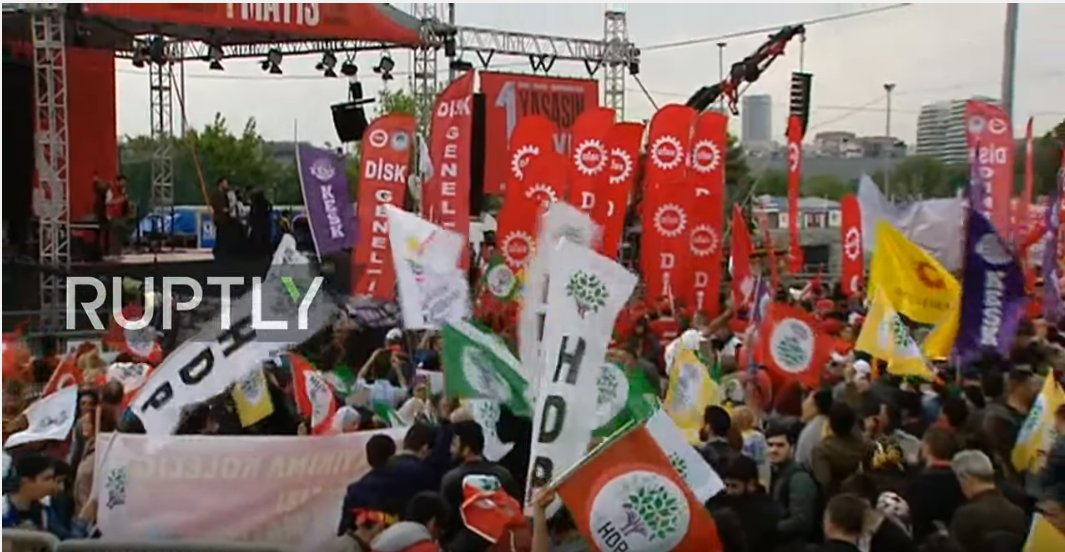











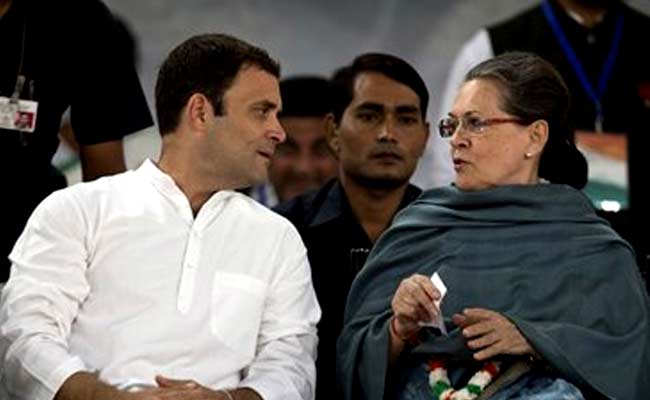
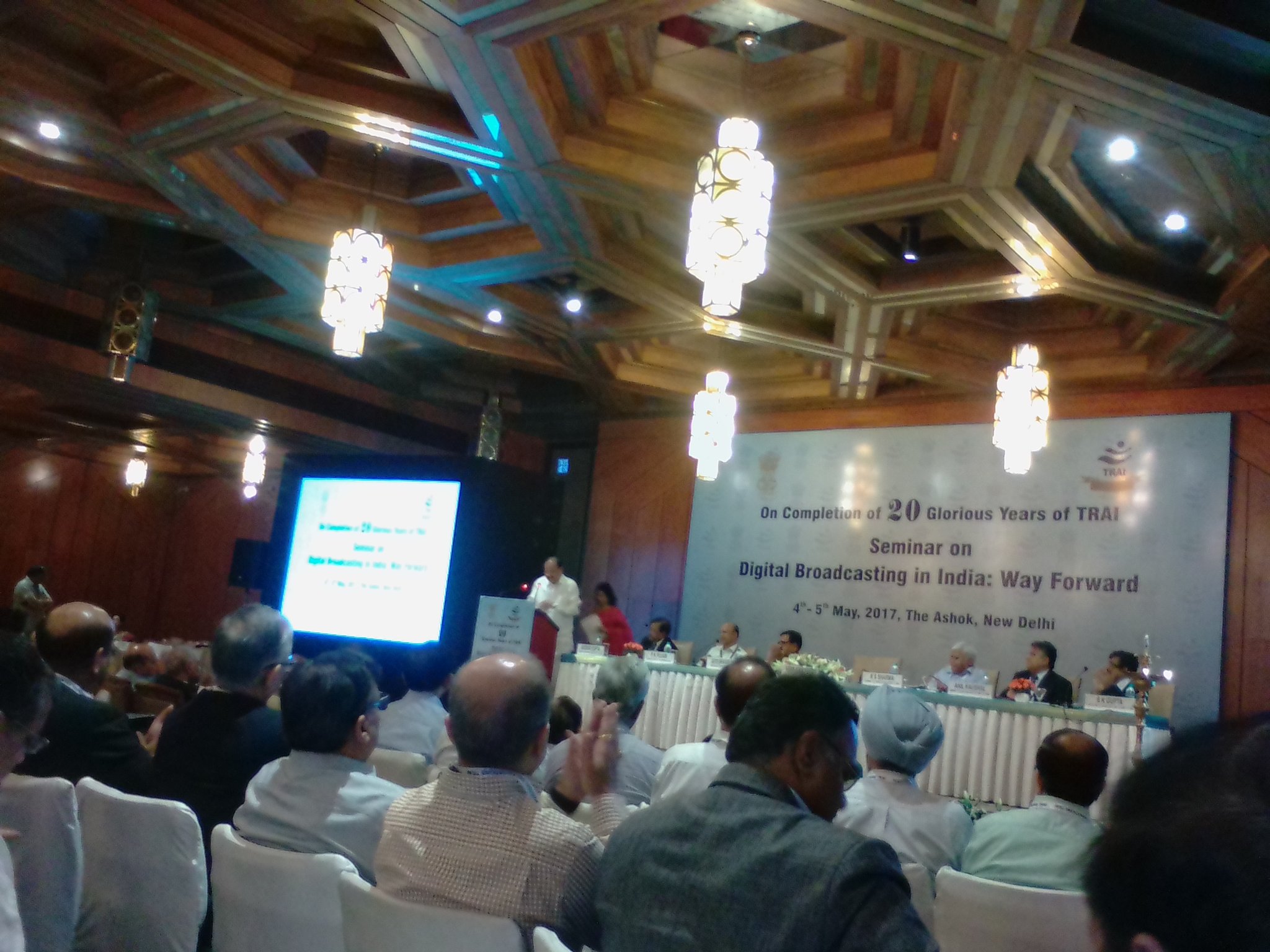
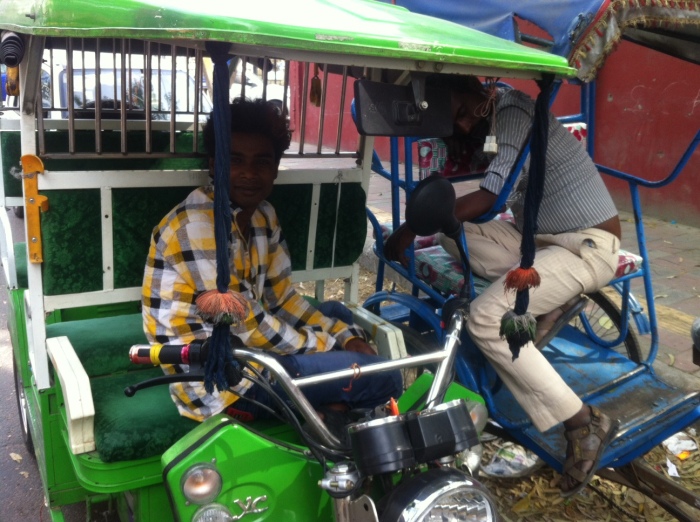
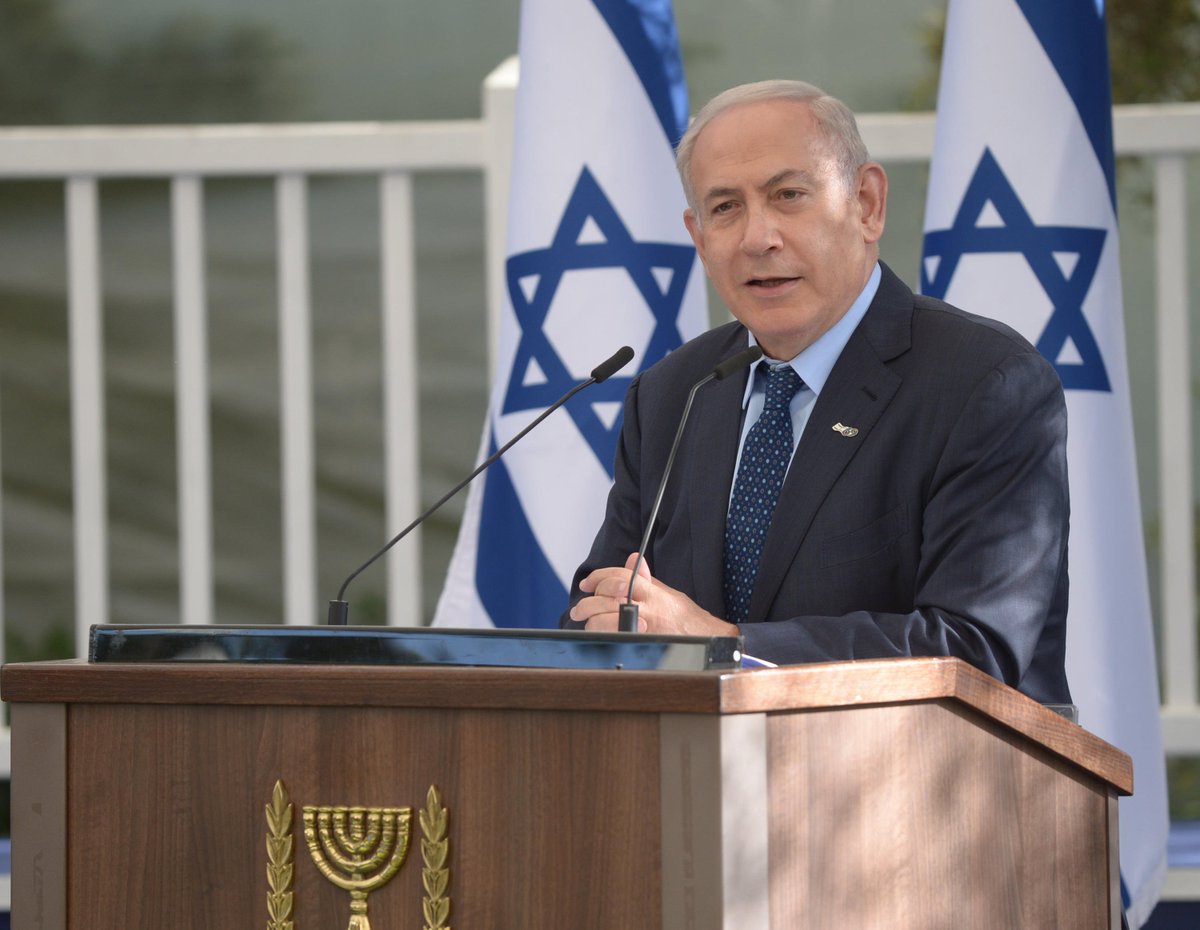

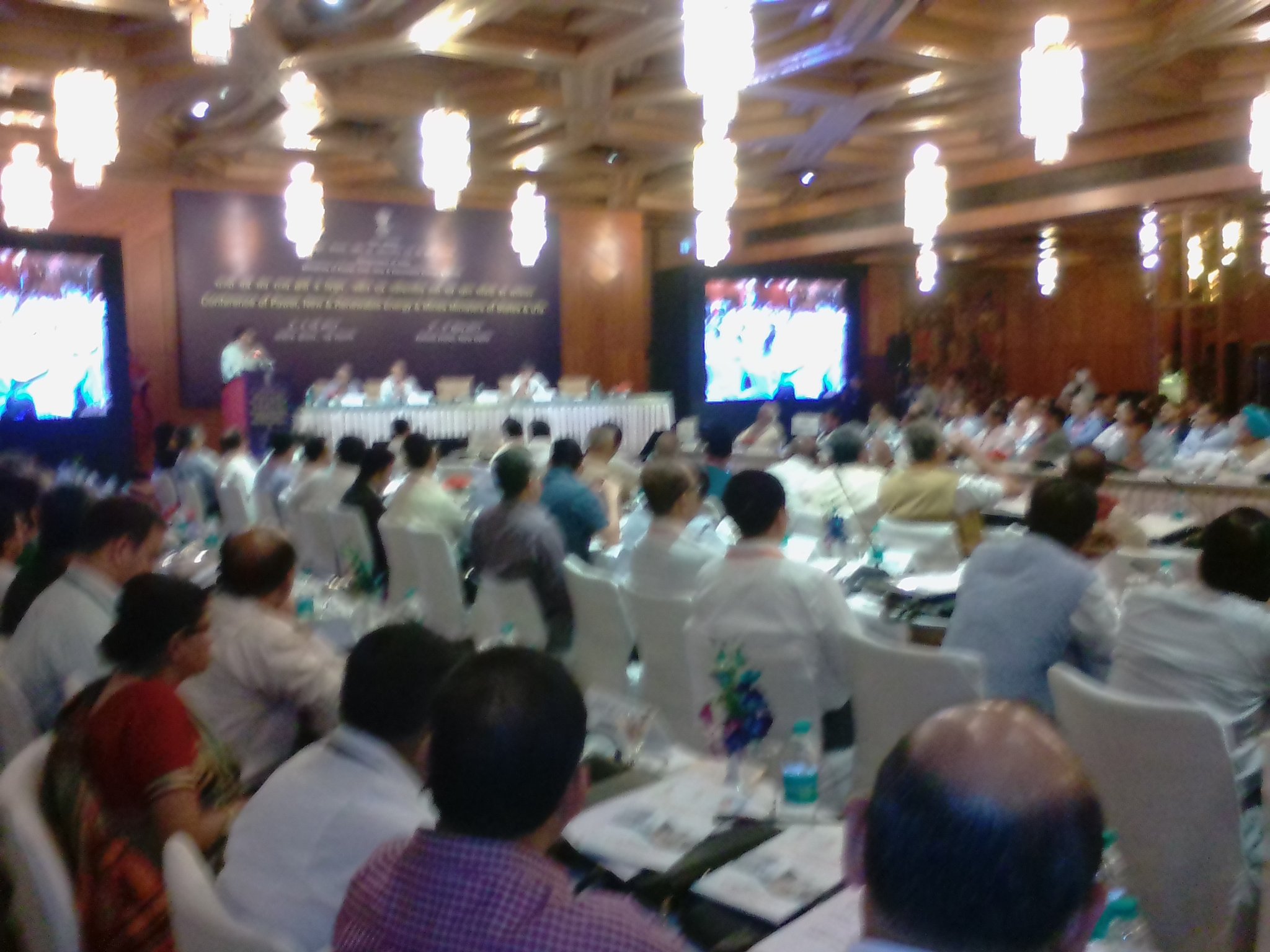

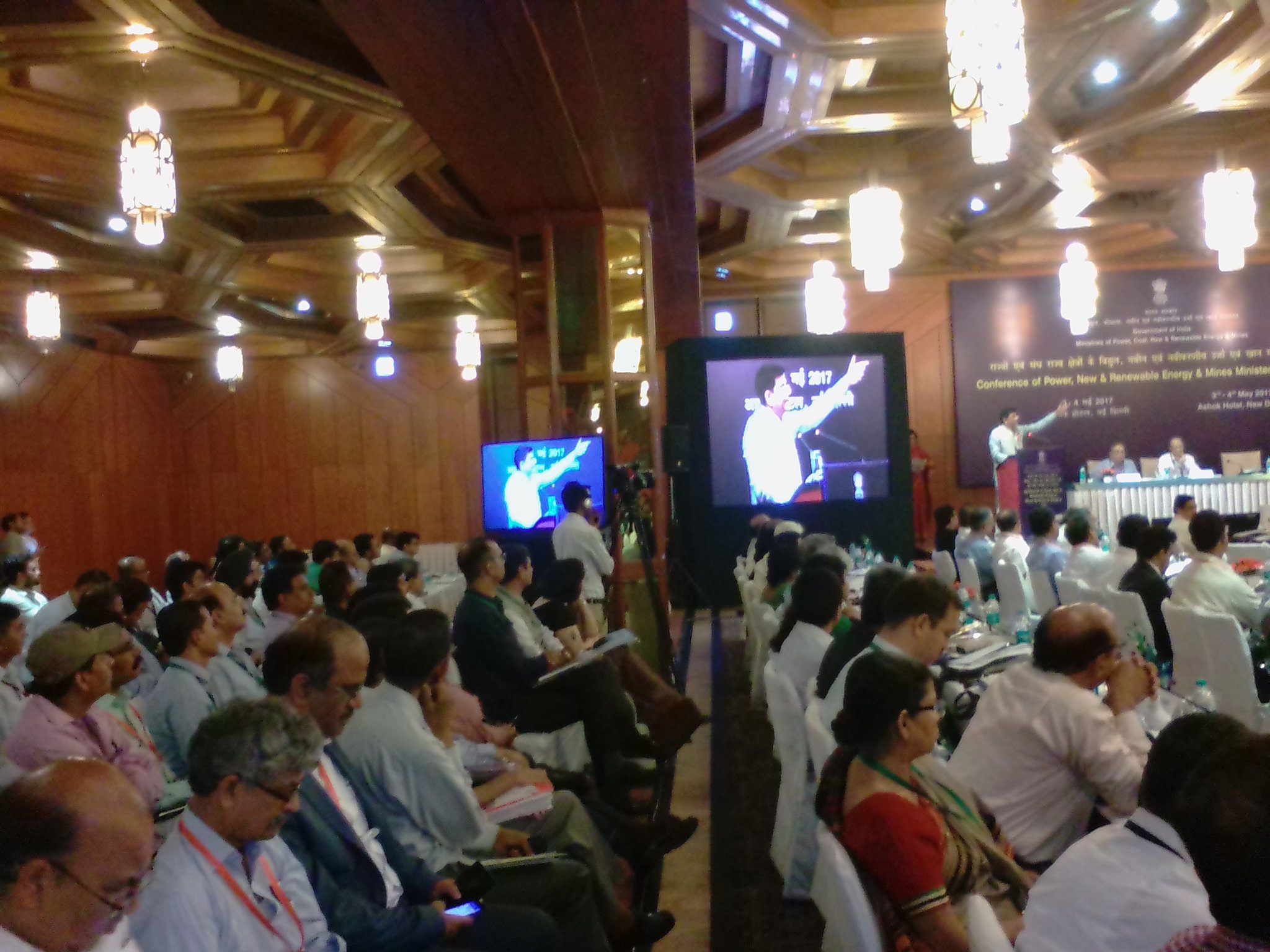

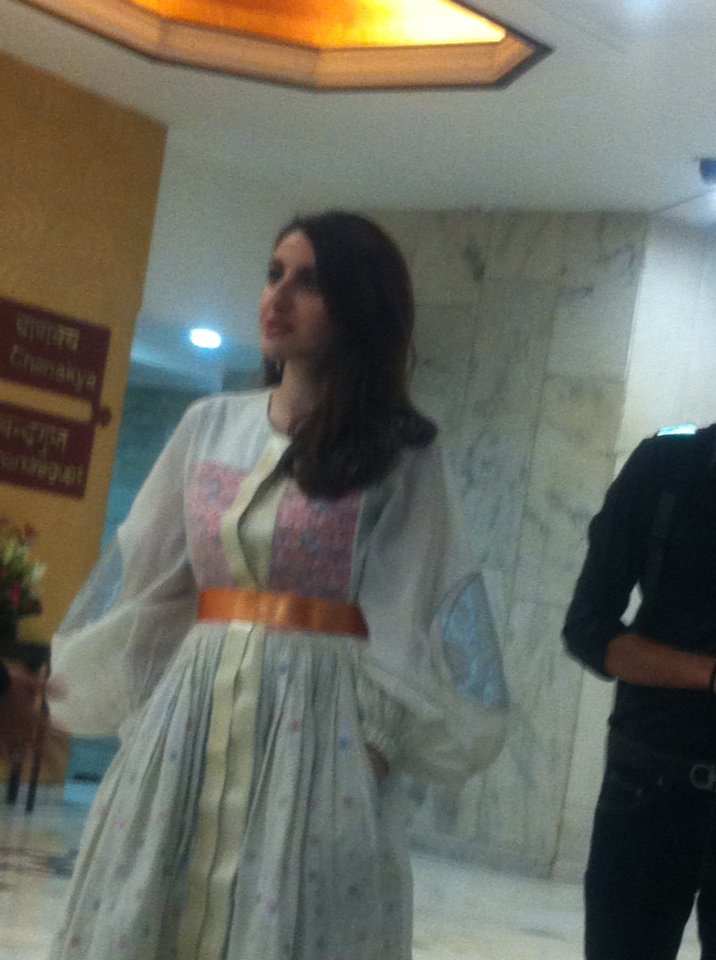

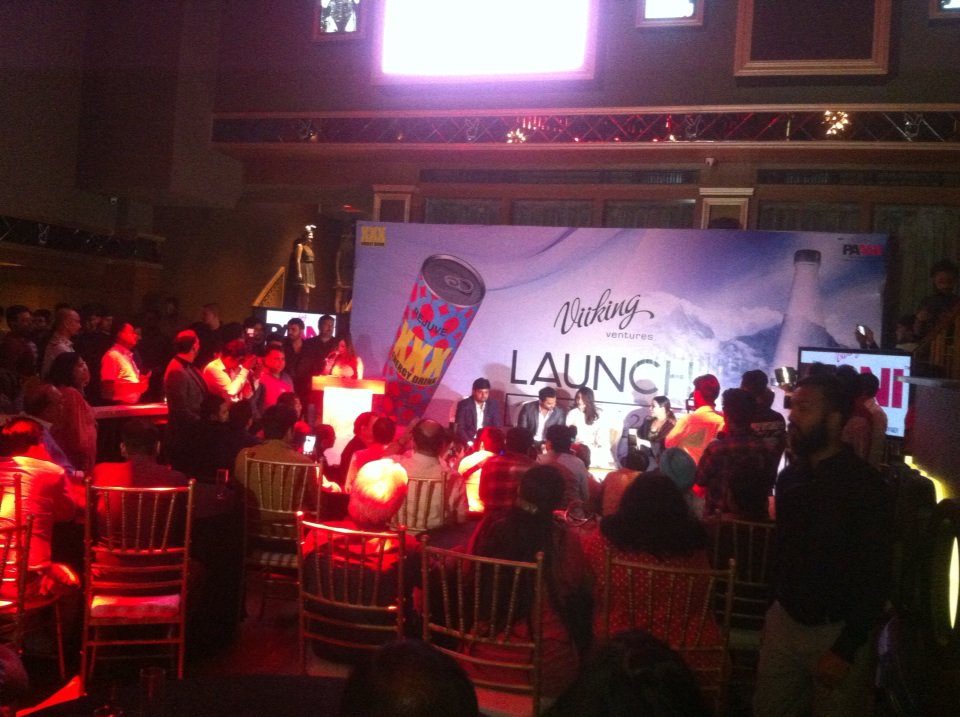































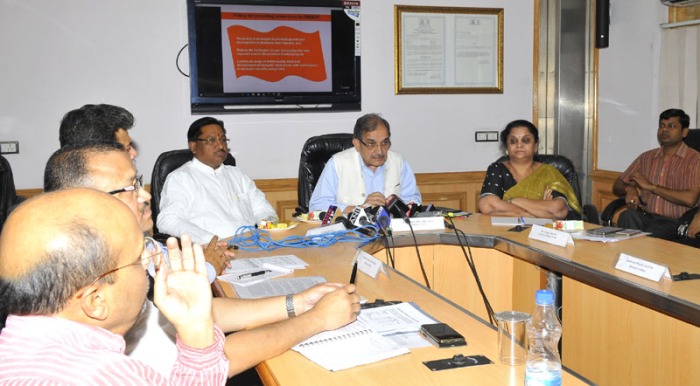







































 Pakistan and China on Saturday signed a series of agreements in Beijing for cooperation in different sectors.
Pakistan and China on Saturday signed a series of agreements in Beijing for cooperation in different sectors.
 Emmanuel Macron take over as new President of France today for a five-year term. The inauguration function held in Central Paris. 39 year-old centrist newcomer Macron was unknown to the wider public three years ago and does not belong to any traditional political grouping.
Emmanuel Macron take over as new President of France today for a five-year term. The inauguration function held in Central Paris. 39 year-old centrist newcomer Macron was unknown to the wider public three years ago and does not belong to any traditional political grouping.











GREENHOUSE GAS (GHG) EMISSION FROM RESERVOIRS
CLIMATE CHANGE AND VULNERABILITY OF HYDROPOWER